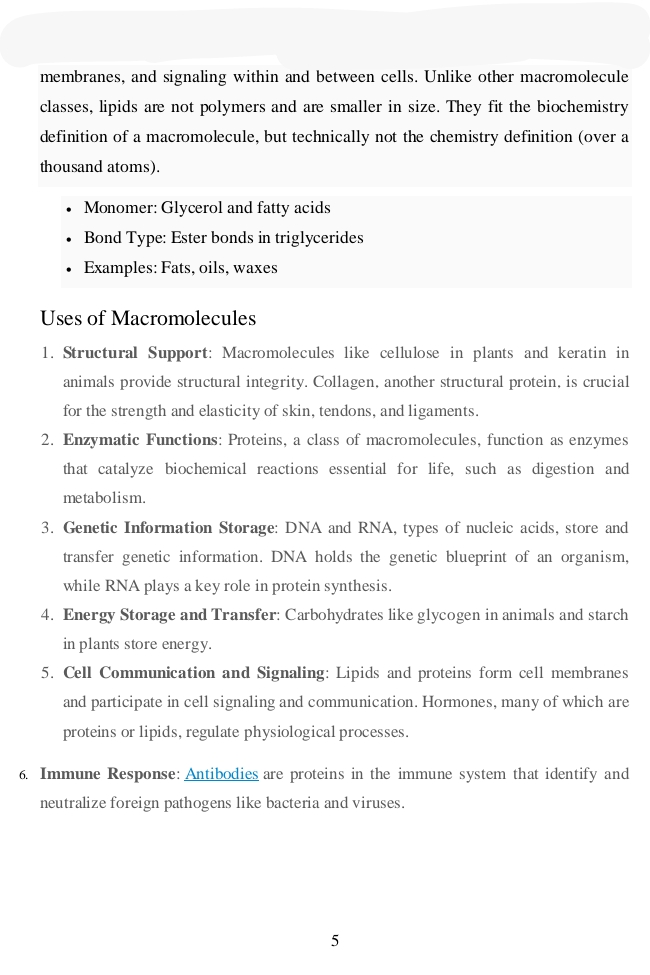What are the uses of macromolecules?

Understand the Problem
The text outlines the roles and types of macromolecules, describing their structures, functions, and examples. It highlights the significance of macromolecules in biological processes and provides specific examples for various categories.
Answer
Uses include structural support, enzymatic functions, genetic information storage, energy storage, cell communication, and immune response.
The final answer is macromolecules are used for structural support, enzymatic functions, genetic information storage, energy storage, cell communication, and immune response.
Answer for screen readers
The final answer is macromolecules are used for structural support, enzymatic functions, genetic information storage, energy storage, cell communication, and immune response.
More Information
Macromolecules like proteins, carbohydrates, lipids, and nucleic acids are essential for life, performing a variety of roles from building cellular structures to regulating biological processes.
Sources
- Macromolecule - Wikipedia - en.wikipedia.org
- 3: Biological Macromolecules - LibreTexts - bio.libretexts.org
- What are the 4 main macromolecules and their functions? - BYJU'S - byjus.com
AI-generated content may contain errors. Please verify critical information